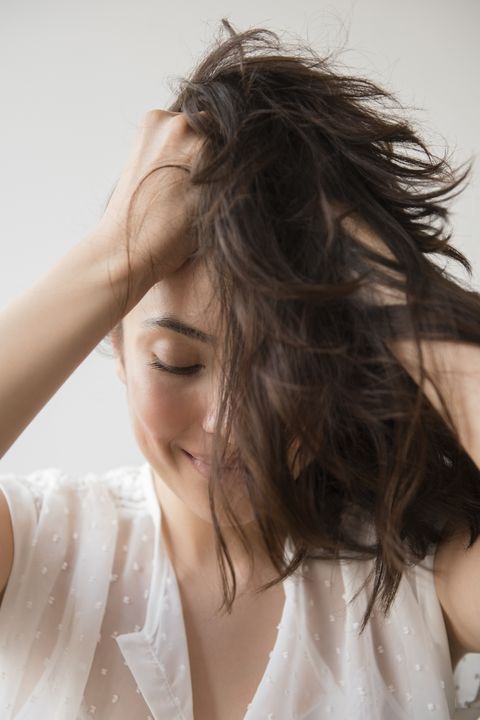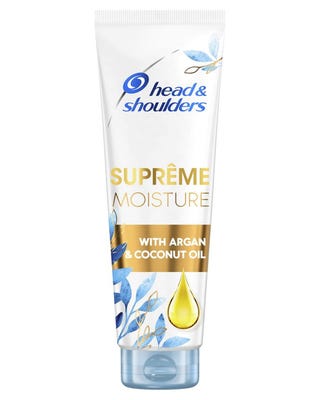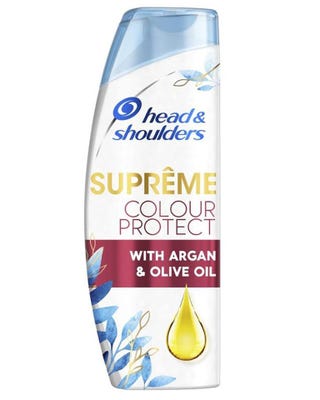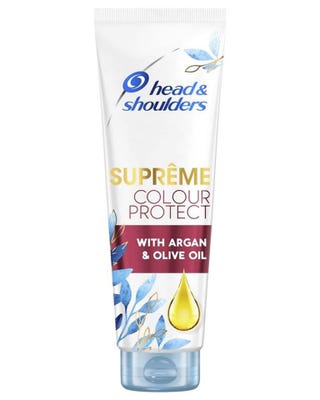How to Get Rid of Oily Flaky Scalp
Cleanse, tone and moisturise – we're all familiar with the power of a good skincare routine. But a scalp care routine? Not so much. The thing is, the skin on your face is often a reflection of the skin on your scalp, so it needs just as much TLC.
Irritated, angry scalps are more common than you might think. An estimated 50% of the adult population struggles with dandruff, yet it's a topic that's considered off limits and uncool in the realm of beauty (when was the last time you complemented a friend's scalp?).
But don't worry, even the most sensitive of crowns can be treated, and without having to spend a fortune. So let's take away the shame and get on with some ~real talk~ about how to tackle those pesky scalp issues and get a happier head.
What exactly are scalp issues?
If hair wash day means itchy, sore skin and avoiding wearing black because of a sudden flurry of white flakes, it's likely you have an issue with your scalp. According to Head & Shoulders dermatologist Dr Anjali Mahto, there are two common scalp concerns to look out for:
1. Dryness
Just like when your face feels parched, a dry scalp occurs when it doesn't have enough moisture. "This can lead to itchiness and sensitivity, which can then cause small, noticeably dry flakes of dandruff," explains Dr Mahto.
2. Oiliness
Does your hair feel heavy and greasy a few hours after you wash it? This indicates you have an oily scalp. "In the same way that pores on the face can become clogged and congested, deep pores of the scalp can too, resulting in excess oil where dandruff-causing germs thrive," Dr Mahto says.
FACT: The highest density of oil glands is on the face and scalp compared to other body areas
So what actually is dandruff?

JGI/Jamie Grill Getty Images
Whether dry or oily, scalp issues can cause dandruff. But what exactly is dandruff? Well, here comes the science bit.
"There's a mini community of organisms that live on the skin's surface, known as a microbiome, and when there's an overgrowth of a yeast called malassezia, this microbiome is put off balance," Dr Mahto explains. "As your malassezia yeast multiplies, it causes dandruff."
Multiplying yeast? Sounds kinda gross, right? But trust us, it's totally natural.
Sometimes scalp problems are accompanied by something even more problematic: thinning hair. "An inflamed scalp will impact the way your hair follicles grow, which can contribute to weaker hair and premature thinning," explains Dr Mahto. So if you want bouncy, shiny tresses, looking after your scalp is a solid move.
This content is imported from {embed-name}. You may be able to find the same content in another format, or you may be able to find more information, at their web site.
How do I fix my scalp problems?
1. Determine your type
Firstly, it's important to make that distinction between a dry or an oily scalp. "Considering that your skin is actually quite similar wherever it is on your body, your scalp type can be determined by your skin type," says Dr Mahto. Does your skin generally feel tight, arid and sometimes flaky? Then it's dry. Is it shiny and a bit slick with large pores? It's oily.
2. Use a hero product
The easiest way to treat scalp struggles is by washing your hair with the right shampoo and conditioner. Luckily, you don't need to stock up on medicinal formulas that cost a ton of £££.
"Different types of scalps require different solutions, and Head & Shoulders covers all bases," says Dr Mahto. "The products are packed with scalp-friendly ingredients, whether you need to add moisture or fight oil, and you can easily get them at your local beauty shop." Added bonus: your hair will be visibly shinier with each use. So which range to choose?
For dry scalps: If you're feeling dry up top, the new Head & Shoulders Supreme collection has got you. "I highly recommend the Supreme Moisture with Argan Oil and Coconut Oil Shampoo and Conditioner," says Dr Mahto. "This is the perfect duo for those with sensitive skin, as the products soothe and calm your scalp while moisturising."


Supreme Moisture Conditioner

Supreme Colour Hair Shampoo

Supreme Colour Hair Conditioner
For oily scalps: Got a greasy scalp? The Head & Shoulders Deep Cleanse range could be the solution you've been looking for. As Dr Mahto explains, "The hero active ingredient piroctone olamine transforms congested scalps, leaving them clean and refreshed and providing up to 72 hours of dandruff protection." Reach for the Deep Cleanse Oil Control Anti Dandruff Shampoo, combined with any Head & Shoulders conditioner to complement those active anti-dandruff ingredients.
3. Check your lifestyle
It's also worth keeping an eye on triggers that can cause scalp flare-ups. As Dr Mahto notes: "There are many factors that are key when considering healthy skin, and your scalp is an extension of that. So once you've found the cleansing products that are right for you, try looking at other influences that might be making an impact."

Oscar Wong
A build-up of hair styling products, weather, pollution, stress and a poor diet can all make dandruff worse. "If you eat a healthy balance of nutrients, look after your mental health and stay aware of changes in your environment, you'll be helping to boost your scalp and skin health," advises Dr Mahto.
And with just a few changes, you can say bye to dandruff and make your scalp happier, leaving you with healthier, more hydrated hair. It's basically a win-win.
Different types of scalps require different solutions. The Head & Shoulders range has the right product for you, available now at boots.com
This content is created and maintained by a third party, and imported onto this page to help users provide their email addresses. You may be able to find more information about this and similar content at piano.io
How to Get Rid of Oily Flaky Scalp
Source: https://www.cosmopolitan.com/uk/beauty-hair/hair/a35263907/dermatologist-solves-scalp-issues/